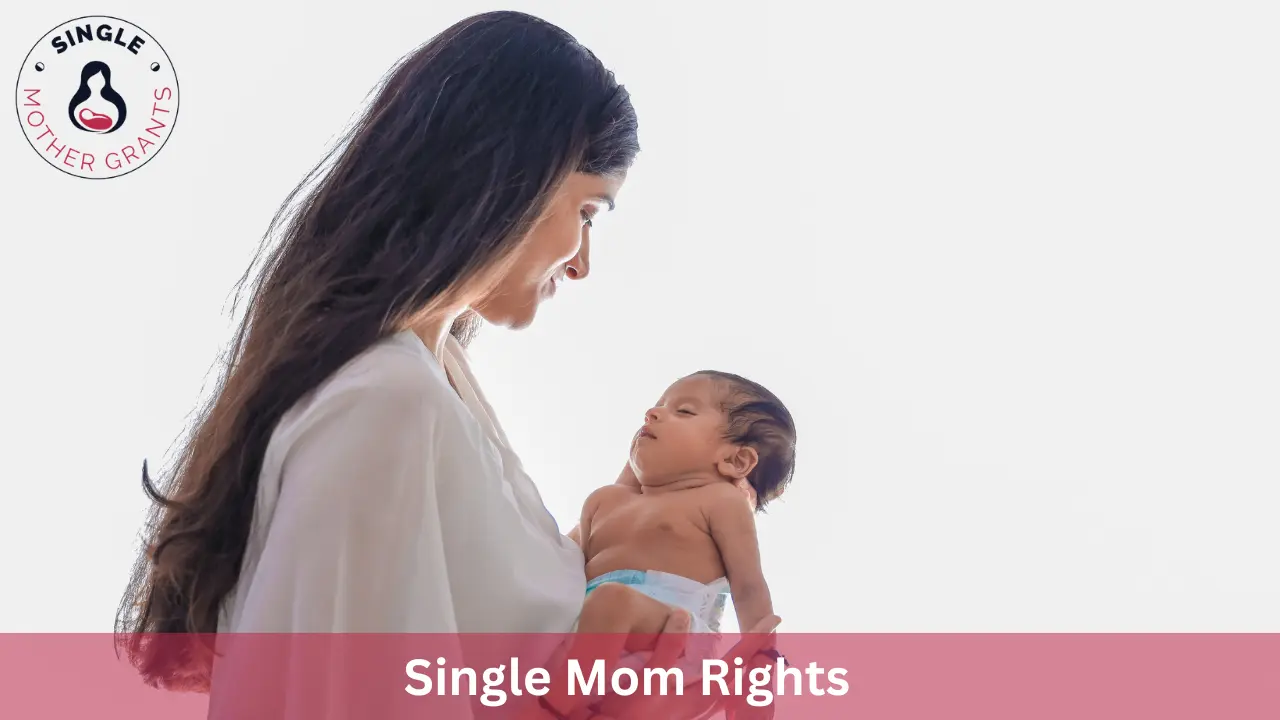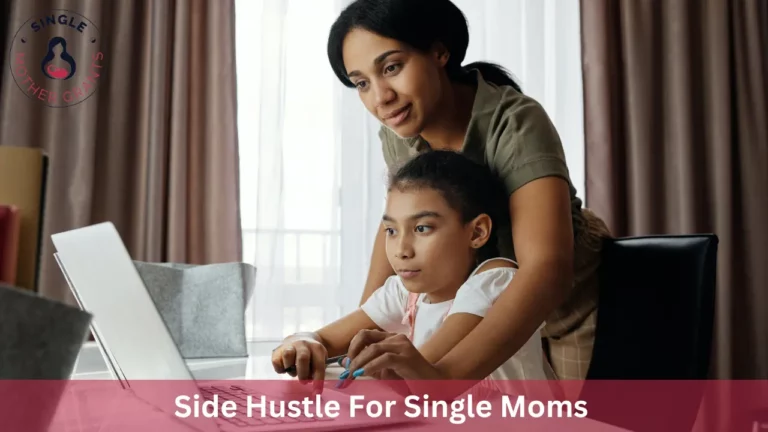Single Mom Rights
According to the United Census Bureau around one-fourth of children in 2022 live in single-parent households with no other adults present. Some laws prohibit discrimination based on gender sex and pregnancy; however, there isn’t any specific law that touches on discrimination based on family status. Even those single parents may need time to stay away from work to take proper care of their kids. They need not be concerned about losing their pay or job. Nevertheless, single moms have rights regarding pregnancy, workplace, and child custody. A lot of people want to know “What are my rights as a single mom” and this guide will be the right option for them.
What Rights Do Single Moms Have?
Single mothers have full legal and physical custody over their children. If the mother was unmarried and single at the time of childbirth they become the custodial parent and will be granted all the legal rights which come with that designation. This is true if there isn’t any father’s name listed on the birth certificate nor if any father came to claim the right over the child during the time of the birth. Single mothers can claim the sole right over their children if paternity has never been established. There are generally child custody issues with the biological father of the child who can make a petition to the court to grant him custody of the child. Issues may take place over the sole or joint custody of the child. If you are a single mom and believe that the biological father of the child is unfit for the child and should not be the guardian of the child, you can request the family court to give you the sole legal and physical custody rights of your child.
What Are The Rights Of Single Mothers Related To Child Custody?
The term child custody is known as the legal relationship which parents have with their kids. There are various types of child custody arrangements however all the decisions related to child custody are made by a judge. Over the past years, mothers were granted to be the sole custodian of their children. However today courts have evolved to recognize the changing and progressing societal roles of family and have considered that mothers are working outside of the home to provide for their families. Earlier it was assumed that mothers by default are best suited to take good care of the child and also have the strongest relationship with the child. But today all courts are applying the child’s best interest standard policy meaning that the father has equal rights as a mother. The courts do their best to decide the custody arrangements in the best interest of the child.
Other Single Mom Rights
1. Rights Of Single Moms About Medical Leave
The United States Department of Labor states that The Family And The Medical Leave Act of 1983 contains provisions about the rights of employees to take paid leaves for particular family and medical reasons. Single mothers can take advantage of such protections as well. The Family And The Medical Leave Act of 1993 provides employees who have worked for an employer for a minimum of 12 months to be eligible to take a job-protected and unpaid leave of up to 12 work weeks in a year to take better care of a child with a serious health condition or to take care of newborn or newly placed foster child. Medical leave for 26 weeks is allowed for single parents whose child has served in the army or military and suffered serious injuries.
2. Single Moment Workplace Flexibility
Workplace flexibility is a universal strategy developed by the Department of Labor to meet the needs and requirements of employees as well as employers. Flexibility here relates to adapting the location, time, and manner in which employees can work and address the complex employment situation. Single mothers in the workplace need time to pick up or drop off their children at school and also have to attend parent-teacher conferences, go to doctor appointments, and be present in some other situations therefore they need flexibility in their work. Even though workplace flexibility is voluntary a lot of employers are embracing the ideas and accommodating the needs and requirements of single mothers and other employees with special needs and circumstances.
3. Single Moms And Pregnancy
Single moms in workflows take advantage of all the protections that are offered to pregnant women in the USA and wake up until the child is delivered. They can use maternity leave for the period after the birth of the child. Laws protect pregnant women including single pregnant mothers against discrimination on all grounds. Single women need protection so that they can cover their pregnancy-related absence from work and safeguard their source of income to better provide for their children. Certain guidelines are developed and disseminated by the Equal Employment Opportunity Commission for employers so that they can handle caregiving employees. These guidelines remove barriers to re-entry and train management to comply with the work-life policy of the organization.
4. Workers’ Compensation
This is a program that is mandated at the staff level and makes sure single moms and other workers receive partial salary compensation for medical care to cover workplace injuries. Single mothers who have no lost time from work and have a medical-only injury can cover their medical expenses with this compensation. In case you lose time from work then you must meet the qualifications that are listed by the state to receive partial salary compensation. There are some states which provide job protection when an employee is out on work compensation leave for specific reasons. You can contact your human resource to know details about workers’ compensation leave of absence policy and their rights.
5. Single Moms And Union Membership
Single mothers have the right to join, form, or assist in organizing a union in the workplace which is guaranteed by the National Labor Relations Act. Having a union can negotiate on behalf of its members and can enter collective bargaining agreements to govern the employee’s relationship with the employer. Single mothers can use this avenue and secure the right to flexible working arrangements as well as be safe against unfair employee labor practices like retaliation, cover victimization, or firing based on family status.
Basic Parental Rights Of Single Moms
The basic parental rights of single mothers include the right to custody, the right to any earnings which a child makes, expect respect and obedience from the child, and suing anyone found guilty of killing or injuring the child. Apart from the rights, there are certain duties and responsibilities which you as a single mom have to perform like providing support to your child, providing adequate supervision for your child, and ensuring all the needs and requirements of the child are met. When your child is at your home you need to make sure they are in a safe and supportive environment. They must get nutritious and sufficient food to be in sound health. You must have a heater or cooler depending on the season.
Different Types Of Single Mom Rights For Custody
The courts do their best to make custody arrangements in the best interest of the child. Following are the different types of custody that are available to parents
- Legal custody: This custody gives one parent the obligation and right to make decisions about the upbringing, religion, healthcare, and schooling of the child. This is a common custody arrangement and a lot of states allow joint legal custody of a child where both parents are a good fit for the child. There is a lot of room for conflicts to arise in legal custody.
- Physical custody: In this custody, parents have the right to be physically present with their children at home. This includes maintaining the child’s schedule, taking their day-to-day care, and providing meals, clothing, and daily transportation. There are states which allow joint physical custody where one child lives at each parent’s home for a specific period. Parents can spend a maximum amount of time with their children but have to live close enough to each other. Further parents need to have an amicable and workable relationship with one another to avoid conflict that hampers their child.
- Sole custody is a fairly straightforward custodial right where one parent is provided the sole legal custodian rights for all of the children. The other parent will be given permitted visitation rights only. Modern courts are moving away from this type of custody arrangement unless it is in the best interest of the child to be kept away from one parent’s household. Few courts give generous visitation rights where sole custody is necessary. This type of custody arrangement is less disruptive to their child in this way when single mothers are involved. However, this type of custody arrangement leads to a limited connection between the excluded parent and child.
- Joint custody: This type of custody occurs with a parent’s shared decision-making responsibilities. Parents will agree to make changes in their schedule to make the arrangement work or in case they cannot then the court will set a schedule so that the parents can adhere. Joint custody here refers to either or both joint physical custody and joint legal custody.
Conclusion
If you have suddenly found yourself to be a single parent then it is not easy for you to know your legal rights. It is always important to understand your basic rights as a single mom. Once you learn about your rights and responsibilities it becomes easier for you as a single mother to identify them during meetings with your attorney and in front of a family court judge. The above-mentioned single mom custody rights and workplace rights will help single moms to know their duties and obligations and how to act in certain circumstances. If you are a single mom facing child custody issues then you need to consult with a knowledgeable and skilled lawyer who can help you to know about the state’s specific child custody law, file all the necessary documents with the court and even present you at the court hearings. The child attorney will help single mothers to ensure their rights as single parents remain protected.







